




Health Information



Physiotherapy for Pregnancy
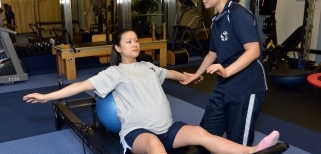
Physiotherapy for Pregnancy (by Sportsperformance Physiotherapy)
Before the baby is born (Ante-Natal)
Physiotherapy during your pregnancy is designed to prevent problems and to treat any aches and pains which occur as the pregnancy progresses.
Back pain in pregnancy
As pregnancy advances, stress on the lower back increases for several reasons.
• The womb is suspended from the spine by ligaments
• As the womb increases in weight, it pulls the spine forward, altering your centre of gravity and exaggerating the curve in your lower back
• Pregnancy hormones, soften ligaments holding the pelvic bones together, allowing an easier passage of the baby through the pelvis during the birthing process. This softening of the ligaments may, however, lead to painful instability of pelvic joints, leading to difficulty in walking comfortably
• The abdominal muscles are gradually stretched by the enlarging womb, and the “six pack” muscles (Rectus Abdominis) may separate, providing less support of the spine from muscles in the front.
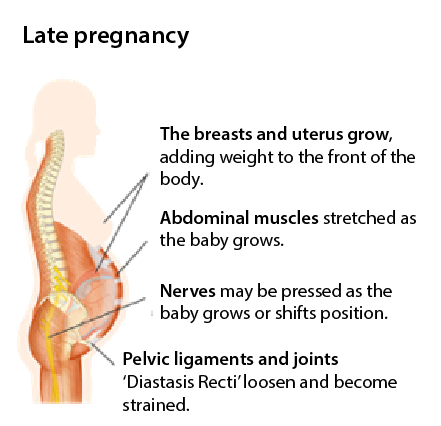 |
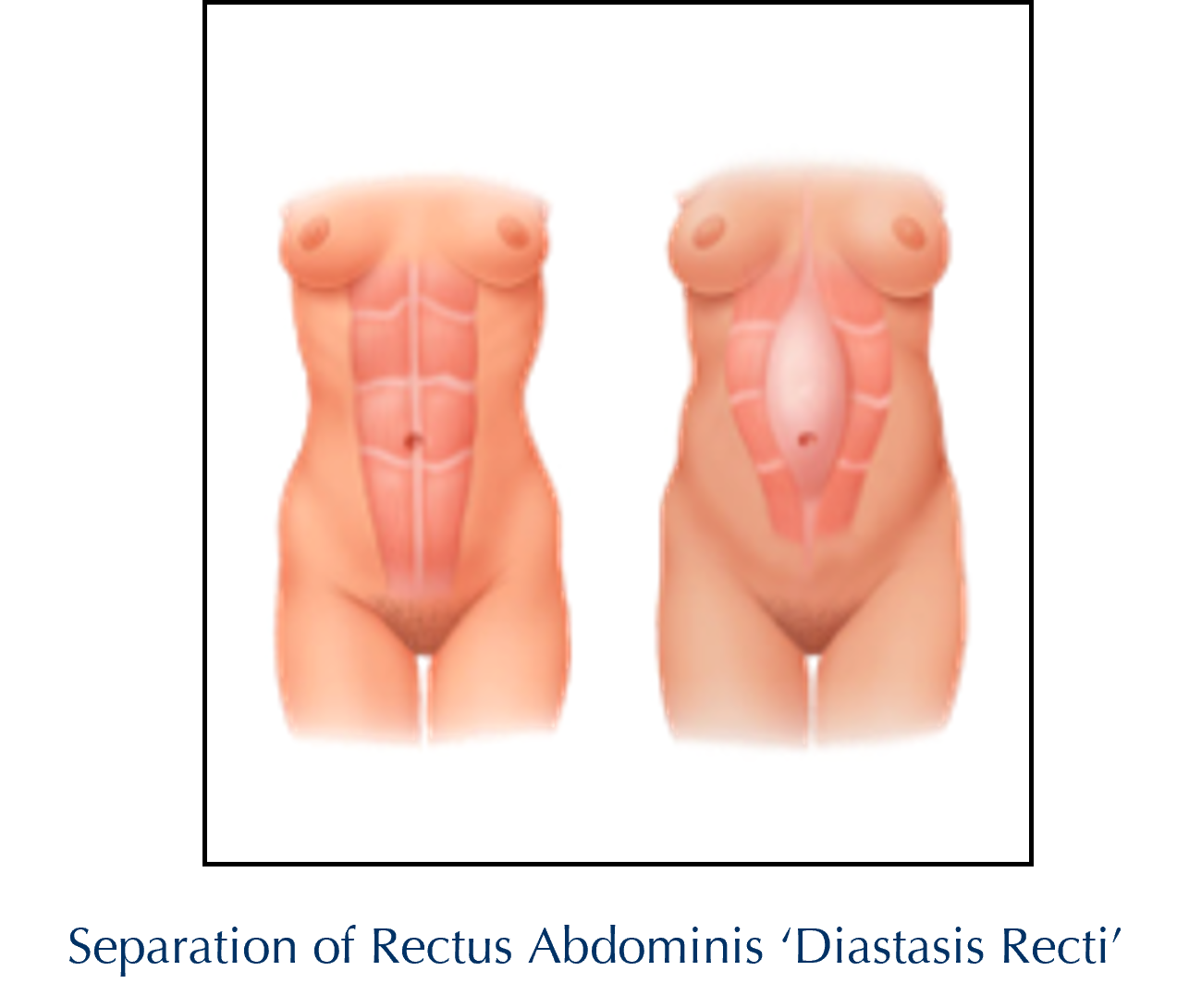 |
The pelvic floor
The weight of the pregnant womb exerts a downward force on the pelvic floor muscles, which are also weakened by being stretched during the baby’s birth. If the pelvic floor muscles are not strengthened during and after the pregnancy, they may remain in a weakened state, leading to stress incontinence and possible prolapse of the bladder and womb in later life.
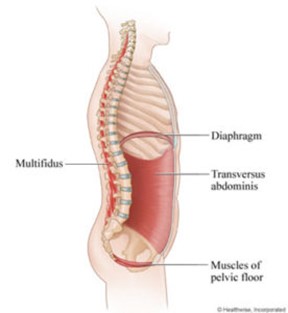
So how can physiotherapy help?
Our physiotherapists will assess any problems and use a combination of manual therapy to restore normal motion to any stiff & painful joints, and exercise to stabilize unstable pelvic joints and maintain strength in the supporting muscles of the spine and pelvic floor.
What kind of exercise is safe during pregnancy?
Low impact clinical Pilates based exercises are designed to strengthen the “core” muscles. The inner core muscles are the transversus abdominis, multifidus, the diaphragm and the pelvic floor muscles. The exercises are modified to be safe during pregnancy.
Our physiotherapists are qualified clinical Pilates instructors, and will guide you through a progressive, individually tailored programme of exercise designed both to address your particular problems and aim to prevent problems in the future.
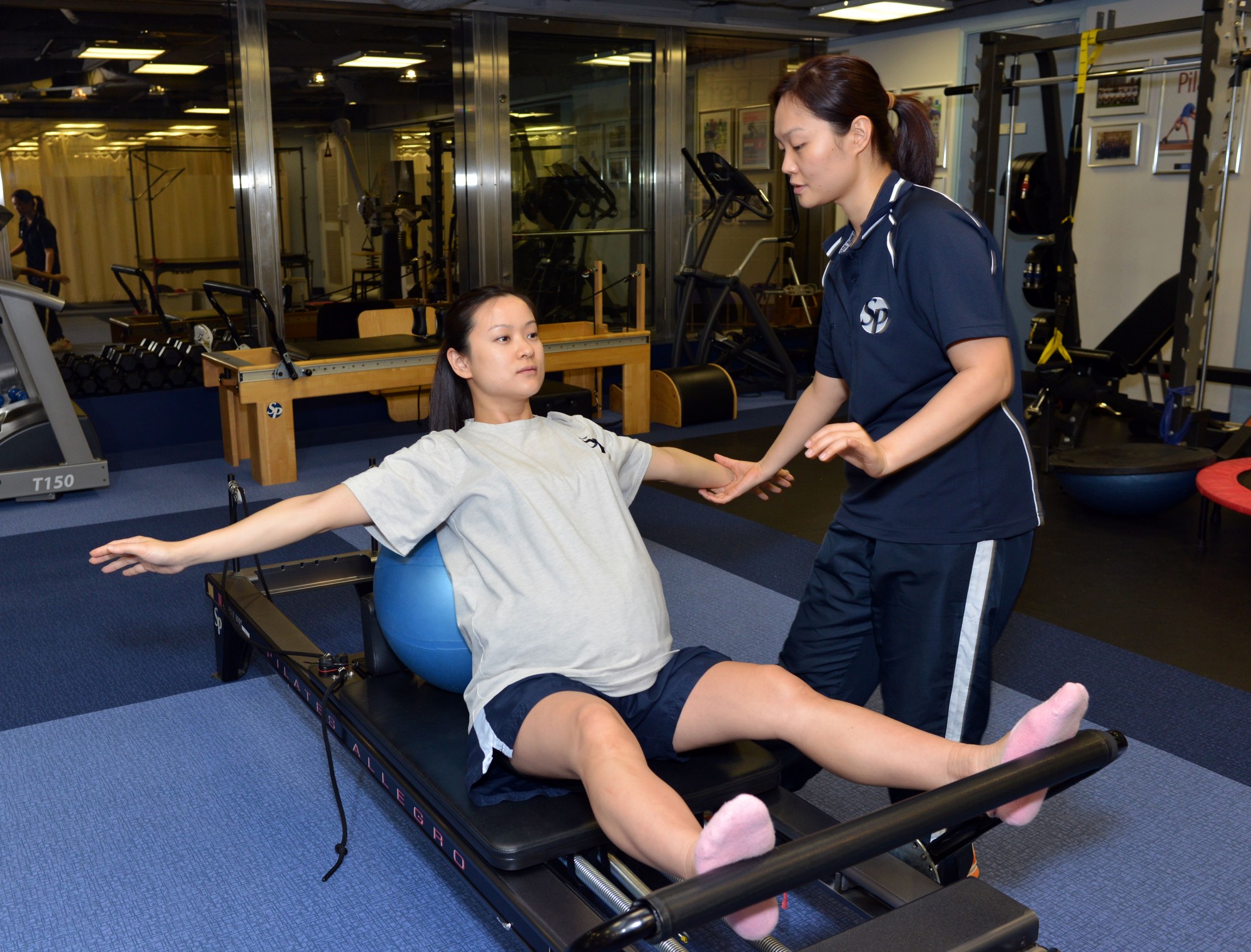 |
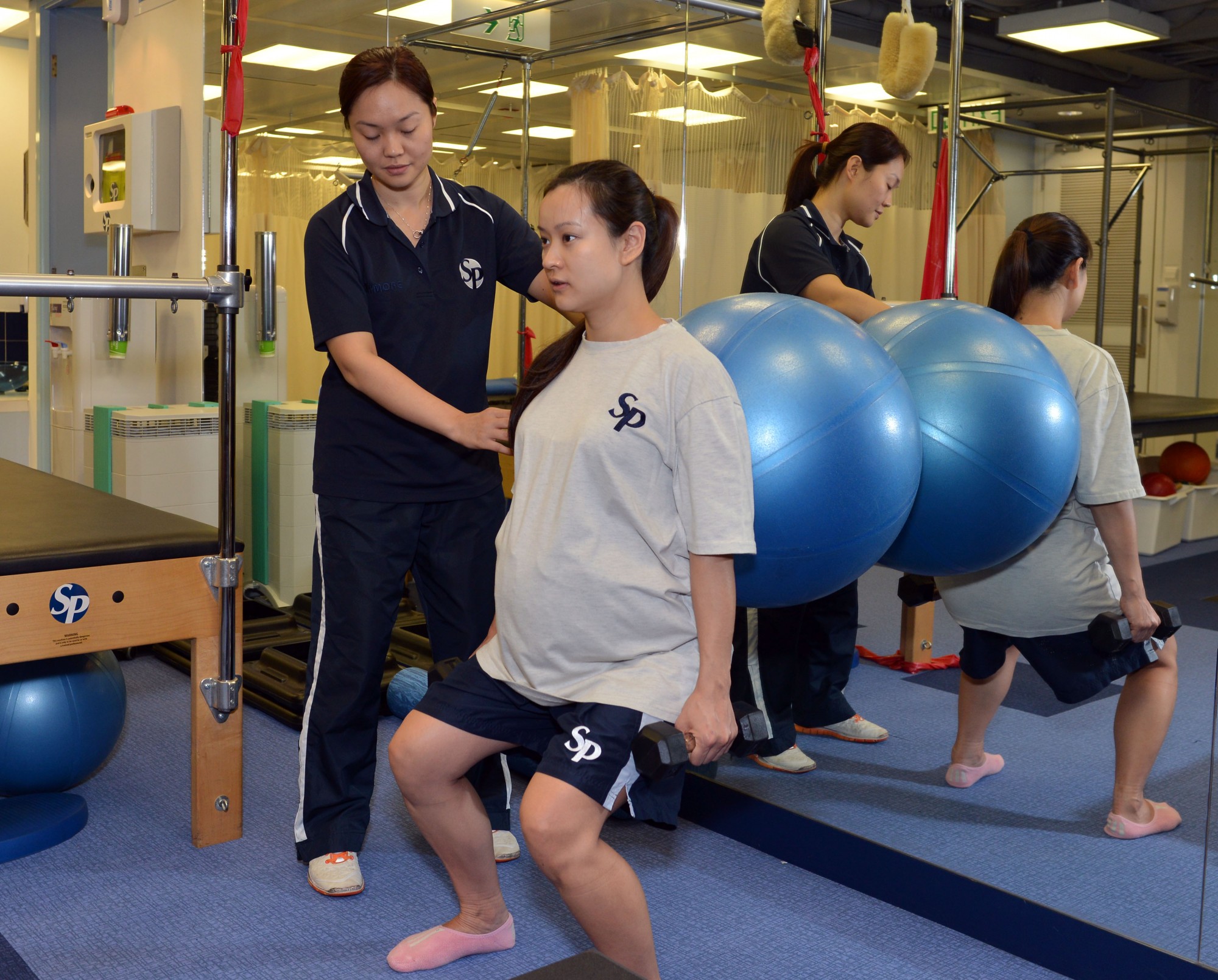 |
After the baby is born
Post-natal physiotherapy
Back pain
Looking after a baby may put lots of strain on your back from bending and lifting. In addition, sitting to feed your baby, may also lead to back problems if you don’t pay attention to your posture. Our physiotherapists will advise you on ways to minimize the strain on your back, and treat any pain you may have developed.
Return to pre-pregnancy fitness
You will be given an individually tailored programme of exercises to return you to pre- pregnancy fitness, addressing any weakness in the abdominal and pelvic floor muscles as well as exercise to close any separation of the abdominal muscles. Core stability training in the form of clinical Pilates is an important part of this rehabilitation process. Realtime ultrasound scanning may be used to assist you in identifying the subtle contractions of the core supporting muscles to achieve optimum results.
Pre & postnatal care with a physiotherapist
We offer one-to-one pre & post-natal physiotherapy sessions. The bigger your tummy grows, the heavier the womb, which pulls the spine forward, causing low back pain. The pelvic floor muscles will also be stretched and weakened as the weight exerts a downward force on it.
Due to this, adequately done physiotherapy can help prepare your body before pregnancy and return you to your pre-pregnancy fitness after giving birth. Qualified physiotherapists at sportsperformance physiotherapy will assess your problems and use a combination of hands-on therapy to restore normal motion to any stiff & painful joints, exercise to stabilize unstable pelvic joints and maintain strength in the supporting muscles of the spine and pelvic floor during the 40-minute sessions. Your physiotherapy trainer will teach you how to do your exercises at home properly.
You may start training anytime if you are fine even in your early stage of pregnancy. However, it’s important to listen to your body and rest when needed.
You can also start post natal physiotherapy one month after giving birth. The pelvic floor muscles may be loosened and tend to cause troubles such as urorrhea.
Learn more about Post-natal Physiotherapy and Women's Health Problems.
Further reading:
- Physiotherapy for Pregnancy
-
Familiar with your pelvic floor muscles
-
Benefits of pelvic floor exercises for women/pregnant women
-
How do you perform pelvic floor exercises?
-
How do physiotherapists use painless techniques to alleviate breast engorgement?



